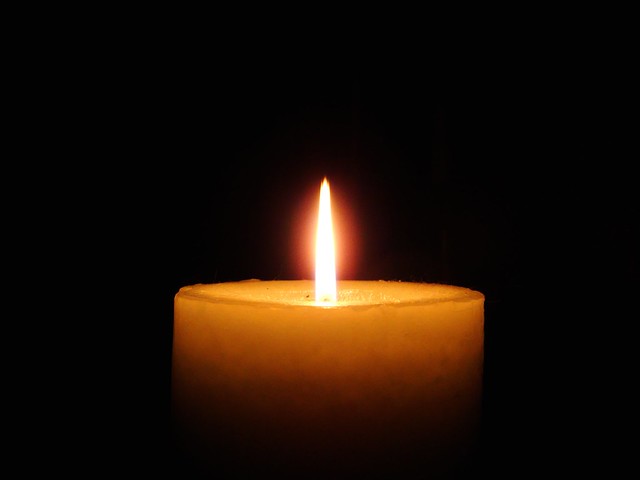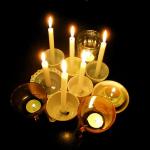
Looking for My Epiphany
I am looking for my epiphany.
My liturgical church tells me this is the season of Epiphany, so there should be a good one waiting for me. It must be just around a corner or hiding in a box in the back of a closet. I suppose I expect it to be like a birthday or Christmas present, hidden so it can be a surprise.
Epiphany is not a long season. I hope my epiphany will be revealed to me soon. I want to spend more time playing with it than I did trying to find it.
Maybe I suspect spiritual life is like my family when I was growing up. They apparently enjoyed trying to surprise me, while I was motivated to find things in advance. I appreciated finding things more than I enjoyed being surprised.
Some of us approach spiritual life as if we are trying to wrestle an epiphany from it. It is an academic exercise, and our understanding is based on what we think we know. Spiritual life is like a puzzle or a math problem or a crime story. We are trying to find the solution which works for us.
Others of us are not really sure how an epiphany looks or feels. We do not have a particularly clear understanding of what the word means. If we pay any attention at all to spiritual life, words and ideas seem to swim around in our heads. When we listen to other people talk about spiritual life they seem to be speaking a foreign language.
Each year shows me something new about this season of Epiphany. Some years are more like searching for a hidden gift, while others are more like being lost without any real clue.
How are we approaching spiritual life this year?
Where is Spiritual Life?
We tend to be in a complicated relationship with spiritual life.
Some of us want everything to be spelled out in detail, like a contract, and become frustrated when it is not. It is almost as if we want to negotiate a deal with spiritual life. We want something we can expect spiritual life to live up to, so we can hold life accountable if it does not meet our expectations.
It is as if we are anxious and wary spiritual life is going to pull a fast one on us. We do not really trust spiritual life to live up to its side of the agreement.
At the same time, we want an arrangement which will cover every eventuality. How can spiritual life really do everything it claims it can?
So we want a comprehensive contract which covers every possible situation and we want it to be easy to understand. I do not think either of those is a particularly reasonable expectation.
Spiritual life intimidates us and makes us feel uncomfortable because of the power imbalance between us. We may have our expectations, but we are not in a position to enforce our agreement. It is not realistic for us to expect to be able to control spiritual life.
We are not going to be able to force spiritual life to do what we want. Our relationship is not limited to controlling.
The epiphanies we receive about spiritual life are usually about our own lack of control.
We sit and listen to the sacred stillness around us and within us, and spiritual life gives us truths. We recognize these truths even though they are often beyond what we understand.
Our search is not about pinning spiritual life down and analyzing it. Our relationship is more complex, more healthy, than that.
A Candle Shining in the Darkness
We practice Epiphany when we take time to listen and pay attention.
I experience my epiphany as a light coming on, as illumination and enlightenment. It is as if we sit in the dark hoping for insight and when it arrives a candle starts to glow.
For a long time I was convinced spiritual life was mainly analytical. If I could just sort out the pieces of my questions I knew I could think my way to a solution.
I spent a long time in the dark with only the focused laser of analysis to light my path. I stumbled often before I realized there were more sources of light, more ways to find my epiphany.
We limit ourselves because we are convinced we already know what we need to know. It is impossible for us to see what is waiting for us in the dark because we choose to look in only one way.
Epiphany opens our eyes to more ways of seeing and new illumination.
We practice Epiphany as we open ourselves to less familiar ways of seeing.
Each epiphany we experience shows us new ways of seeing and gives us new insight into new truths.
Practicing New Epiphanies
We do not only experience epiphanies during this liturgical season of Epiphany.
it is easy for liturgical churches to become caught up in traditions and history. There seems to be a sense of doing things the same way each year because it is how they have always been done.
Epiphany, shedding new light and new insight, can be an antidote to maintaining traditions.
Each year, each season, each day is filled with new insights and new illumination for us. Our experiences, the people we meet, our thoughts and emotions, spark new epiphanies in us.
We practice Epiphany by not allowing ourselves to fall into established habits and ways of thinking. Each epiphany illuminates new possibilities.
Epiphany is unlike other spiritual practices. Our practice of Epiphany is not about developing consistency or regularity every day. Each day holds insights of its own.
We practice Epiphany when we appreciate how spiritual life is woven into our everyday lives. Each experience is a new window into deep wisdom.
As we wait and hope for illumination the candles light up new epiphanies.
How am I practicing my Epiphany today?
Where will my Epiphany spark new light this year?
[Image by spcbrass]
Greg Richardson is a spiritual director in Southern California. He is a recovering assistant district attorney and associate university professor, and is a lay Oblate with New Camaldoli Hermitage near Big Sur, California. Greg’s email address is [email protected].












